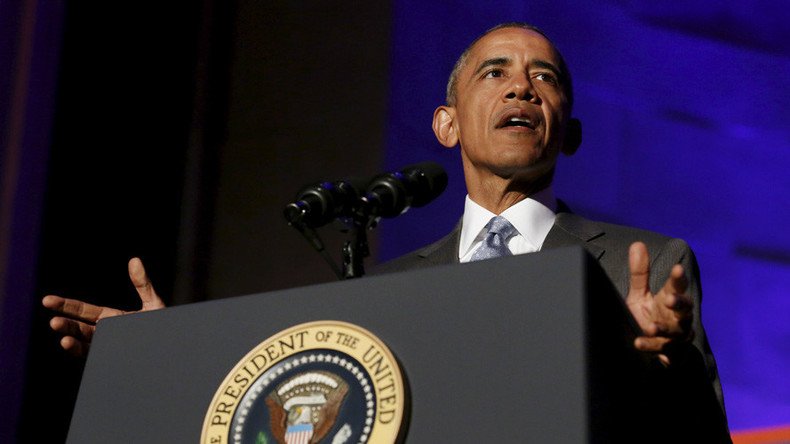Why Obama really wants Britain to stay in the EU… to impose TTIP on Europe – NGO

US President Barack Obama is in the UK to impose the “toxic” Transatlantic Trade and Investment Partnership (TTIP) deal on Britain, a move which will allow US firms to demolish the state health system and more besides, War on Want warns.
The British NGO has branded Obama’s official visit as the forward edge in an imperialist-style fight to make sure the UK, and Europe more broadly, accept the principles of TTIP.
Critics of the plan say the negotiations have largely been carried out in a secretive and undemocratic way and TTIP would effectively crack open Europe for big US firms by removing a range of regulations.
They fear that private data, public services, food safety standards and even democracy itself could be threatened by the unaccountable power of big US capital.
War on Want said the deal is meeting with widespread resistance across the continent, with the French threatening to terminate talks and public approval plummeting in Germany.
“TTIP is an unpopular, anti-democratic stitch-up,” War on Want Senior Trade Campaigner Mark Dearn said in a statement.
“If President Obama truly believes in democracy he should forget about forcing this dodgy deal on the people of Europe.”
In an article for the political blog Left Foot Forward, Labour MEP Jude Kirton-Darling warned that proponents of TTIP must “acknowledge that this is inherently a delicate process, and that the end goal is precisely to shift the balance between what is up for trade and what isn’t.”
She said no referendum was required “to know that citizens have red lines: no weakening of food safety, health or labor standards, no infringements on democratic rights or attacks on public services.”
“Such an important decision simply cannot be taken against the public’s will,” she said.
The UK government denies that food safety, sovereignty, public services or democracy will be infringed upon, claiming that “a successful and ambitious TTIP could boost the UK economy by as much as £10 billion [US$14 billion], and benefit the EU economy by up to £100 billion.”













